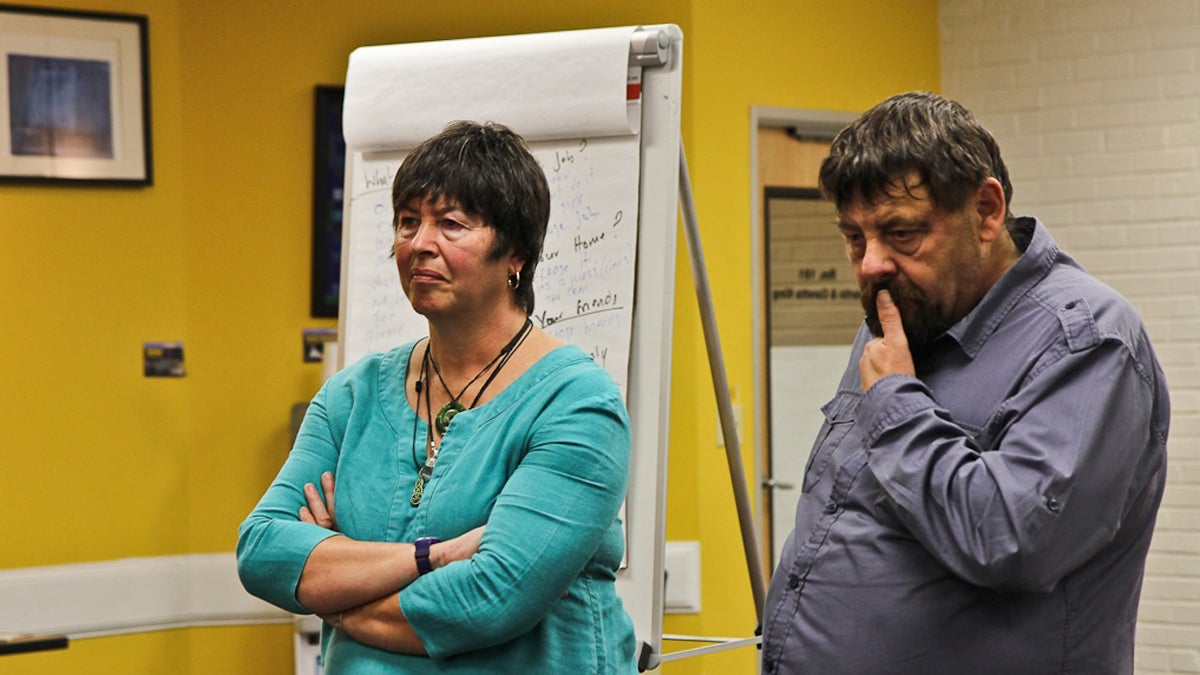Radically different approach to hearing voices aims to empower those affected

Karen Taylor and Ron Coleman present their self- and peer-led recovery program for mental illness at RHD in Philadelphia. (Kimberly Paynter/WHYY)
Treating people who hear voices has traditionally involved using medications to make the voices stop. But that has not always proved successful.
The international “Hearing Voices Movement” now aims to change that approach, and wants affected people to embrace the voices they hear.
A group of Philadelphia mental health care providers was trained on this method this week at Resources for Human Development.
Mental health nurse Karen Taylor of Scotland led the workshops. When she was first trained, she said she was told to never ask patients about the voices they were hearing.
“They told us that somehow it would be bad, horrible things would happen to the person, and that the best thing I should do is distract the person,” she said.
Taylor now encourages people to describe the voices, to talk about them, to explore if they are connected to events in their lives. “I want to know as much information as I can about the voices because that then triggers questions that the person themselves wants to know about the voices,” she said.
Ron Coleman of Scotland conducts the trainings with Taylor — he’s been hearing voices most of his life, and thinks they were connected to sexual abuse and other traumatic events in his life.
“If I hear the voice of a Catholic priest who abused me, or the voice of my first wife who died, no amount of medication is going to change that,” he said.
Coleman and Taylor say the Hearing Voices Movement empowers people — and allows them to gain control over what they are hearing and how they react to it. They add that this approach reduces the stigma and shame typically associated with the condition. People are also encouraged to meet in support group with others who are affected by voices, to discuss and dissect their experiences.
WHYY is your source for fact-based, in-depth journalism and information. As a nonprofit organization, we rely on financial support from readers like you. Please give today.


